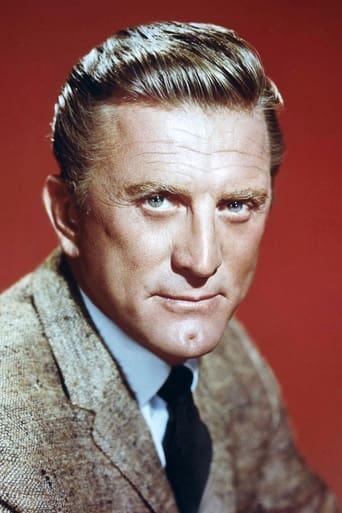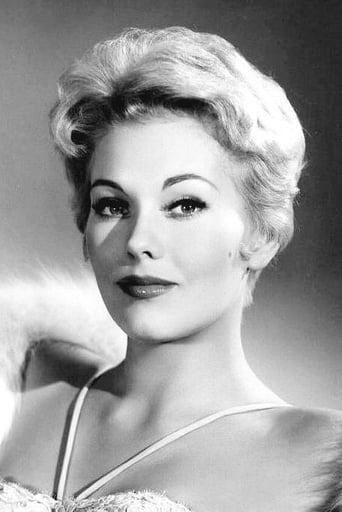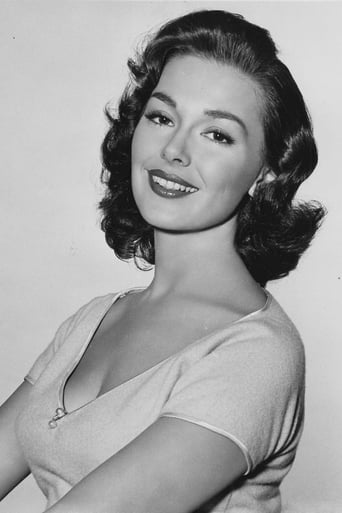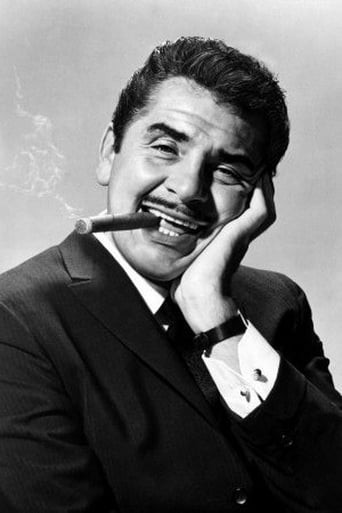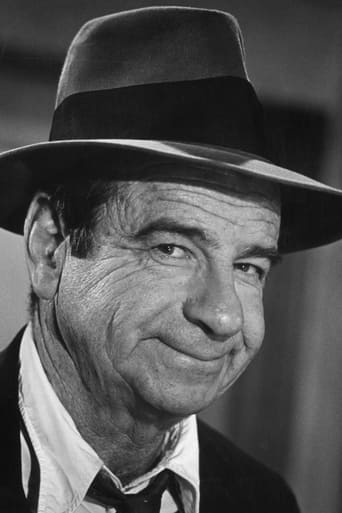Maidgethma
Wonderfully offbeat film!
Stometer
Save your money for something good and enjoyable
CrawlerChunky
In truth, there is barely enough story here to make a film.
Catharina_Sweden
This movie was a disappointment to me. I had hoped that it would be something like "Brief Encounter", but with more attractive leading actors. And it is - partly. The romance is there. But it is interspersed with social realism, the psychoanalytic lingo that was so common in novels and movies in the 1960:s, an unhealthy atmosphere overall among the middle-aged couples in the upper middle-class neighborhood, a lot of talking and reasoning... It is also much too long and partly tedious. All this does not fit into a romantic love story. The most incongruous thing of all, however, was the end music: an angelic choir with a sugar-sweet, romantic song, that should have been just right in an animated Disney Princess movie... I wonder what the person who chose that end song was thinking about..? :-O Despite from my criticism above, I think there are good scenes too that illuminate the disastrous situation that I think most of us at least brush against at on time or other in our lives. I.e.: to fall in love with someone who is already married, or to fall in love with someone else while one is oneself married. Or both, as in this film. For instance the scene when Kim Novak, playing the unfaithful wife, is walking around in the private rooms of her married lover and his wife. The look of all the little intimate things THOSE two share - the bed, the towels, the toilet utensils, and not least the kid who suddenly appears in the door - suddenly makes her understand what it is she is trying to destroy. A marriage and a family. That scene is superb!
Ed Uyeshima
This glossy 1960 melodrama was part of a wave of elegantly mounted Eisenhower-era films that dealt with seemingly normal people caught in situations in which they violate socially acceptable behavior but of course, not without a lot of grief, much of it self-inflicted. The acknowledged master of the genre was German-born filmmaker Douglas Sirk ("All That Heaven Allows", "Imitation of Life"), but this especially soapish entry is definitely cut from the same cloth. Directed by journeyman Richard Quine ("Paris When It Sizzles"), it doesn't have the Baroque-level sensibilities to make this quite the wallow that Sirk's films have become over the years. Part of the reason is that the story is told mostly from a decidedly male perspective, which appears to run counter to the viewing audience one would expect for this film. It also feels overlong at 117 minutes.Written by Evan Hunter ("The Birds") based on his own novel, the plot concerns successful architect Larry Coe frustrated by his inability to live out his Frank Lloyd Wright-level aspirations while married to Eve, a sharp woman whose innate pragmatism encourages him to take on unappealing commercial projects. At the local supermarket, he meets Maggie Gault, beautiful but also married, and sparks are inevitable. She helps him get a commission to build a mid-century stunner of a cliff-side house for commercial novelist Roger Altar. The out-of-the-box design and construction of the house appears to parallel the illicit affair that develops between Larry and Maggie. What's most interesting about the story is not so much the adultery but the motivations behind the affair. Larry is not running away from a shrewish wife but rather looking for a kindred spirit who understands his artistic aspirations, while Maggie is married to an indifferent, probably impotent husband and trying to escape the stigma of "the other woman" already lived out by her mother. Nonetheless, what really dates the film is the underlying misogyny toward both Maggie and Eve as both appear victimized by how men define them.Quine gathered an intriguing cast here. Just before taking on Kubrick's "Spartacus", Kirk Douglas can't help but look heroic with his clenched jaw and chiseled features, but he is also surprisingly reserved and life-sized as a suburban father who waits with his children at the bus stop. Still fresh from Hitchcock's "Vertigo", Kim Novak uses her glamorous allure and hesitant manner to solid effect here. Truth be told, despite the attractiveness of the leads, the sideline performances are comparatively more interesting - Barbara Rush shifting mercurially from sensible to distraught as Eve; TV comedian Ernie Kovacs likeably vulnerable in a rare dramatic role as Altar; and best of all, a young Walter Matthau as caddish neighbor Felix whose prurient interests become fully exposed when he discovers the affair. There is a particularly unnerving scene between him and Rush that makes you wish Quine took even more chances with the trite story. The movie even comes with a syrupy, overblown theme song with a full orchestra and chorus. Unfortunately, the 2005 DVD offers no extras except previews for three other films. I would have liked to have seen a featurette on the modern Japanese-style house Larry designed.
laddie5
Kirk Douglas, still pumped up from Spartacus, fills out an array of knit shirts and chews a thoughtful pencil as a "serious" architect trying to balance his personal integrity with his suburban lifestyle (materialistic wife, snot-nosed kids -- the full disaster, as someone once said). Into his fading dreams comes the stunning Kim Novak... bruised, hurting, and longing for love so much she's practically falling out of her cashmere sweater. They sneak away to a beachside roadhouse for martinis and you can guess what happens next.Except you can't, really. Some commentators on this board have called this a soap opera, but in fact the strength of the movie is that it avoids cliché at every turn. The illicit lovers elicit only sympathy (sorry, edwagreen, you really need a remedial writing course) as they encounter every real-life obstacle that adulterers are prey to -- socially awkward patio parties, lies stretched to the breaking point, shameful discovery -- and eventually spread damage and heartbreak to each other and those they care about most.And so the great Richard Quine takes Evan Hunter's overcooked potboiler of a novel and turns it into a small classic -- full of a delicate sadness "worthy of Ophuls," as critic David Thomson put it. The movie has its nostalgic charms: an L.A. with smogless skies and plenty of room for building a new house; Walter Matthau as a neighborhood wolf (his leering advice to his 9-year-old son is priceless); Barbara Rush as the wife (I liked one poster on the old AMC site who beautifully summed her up as a "tight package"); and Ernie Kovacks as a semi-sleazy writer who gets some life lessons from Douglas.It also has moments of quiet emotional truth and one is particularly poignant: Douglas and Novak meet accidentally at a kiddie park and haltingly talk through their situation, realizing how hopeless it is. When I was a lad, my parents took me to this exact same amusement park; it was on Van Nuys Boulevard in the Valley, next to Ho Toys Chinese restaurant, glimpsed briefly in the background. The intersection of my childhood and adult perspectives in this scene fairly blew my mind... "Strangers" is a perfect time capsule of Los Angeles in 1960, but it's also quite timeless.
keylight-4
This film is nothing but a beautiful Technicolor soap opera, but wow, what great-looking stars -- the gorgeous Kim Novak, with a figure that would knock your eyes out, and virile, well-built, flat-bellied Kirk Douglas! The acting, at least by Kim Novak, leaves a lot to be desired -- she always seems to be in some kind of a mental fog, and delivers her lines lifelessly, without feeling.But this movie is not to be missed, if for no other reason than the unintentionally funny scenes between Kim Novak ("Maggie") and her cold fish of a husband, "Ken". In one scene, Maggie is going out for a clandestine meeting with Kirk Douglas ("Larry"), poured into a tight, revealing red dress that practically screams, "I'M HAVING AN AFFAIR!". Her prissy husband is sitting on the sofa reading the newspaper, oblivious. Maggie tells Ken she's going out with a girlfriend or something like that (yeah, sure), and when Ken fails to notice the obvious, she says to him in that smoky voice, "Suppose I'm going to meet a man. It happens", to which Ken replies, glancing up briefly and rattling his newspaper, "Not to someone like you". That hilarious bit of dialogue alone makes this movie worthwhile!

